Filter by
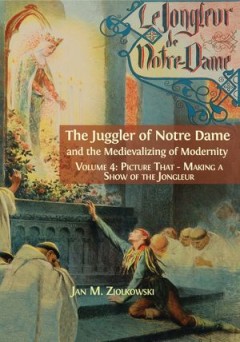
The Juggler of Notre Dame and the Medievalizing of Modernity : Volume 4 Pictu…
Born into a distinguished aristocratic family of the old Habsburg Empire, Hermynia Zur Mühlen spent much of her childhood and early youth travelling in Europe and North Africa with her diplomat father. Never comfortable with the traditional roles women were expected to play, she broke as a young adult both with her family and, after five years on his estate in the old Czarist Russia, with her …
- Edition
- -
- ISBN/ISSN
- 9781783745319
- Collation
- -
- Series Title
- -
- Call Number
- 900 ZIO j
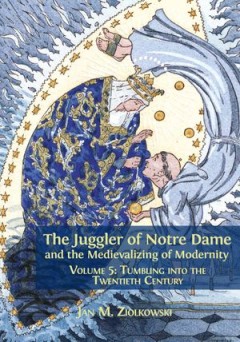
The Juggler of Notre Dame and the Medievalizing of Modernity : Volume 5 Tumbl…
The ANZUS Alliance was a defence arrangement between Australia, New Zealand and the United States that shaped international policy in the aftermath of the Second World War and the early stages of the Cold War. Forged by influential individuals and impacting on global events including the Japanese Peace Treaty, the Korean War and the Suez Crisis, the ANZUS Alliance was a crucial factor in the se…
- Edition
- -
- ISBN/ISSN
- 9781783745364
- Collation
- -
- Series Title
- -
- Call Number
- 900 ZIO j
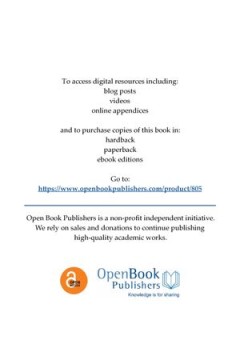
The Juggler of Notre Dame and the Medievalizing of Modernity : Volume 2 Medie…
"This ambitious and vivid study in six volumes explores the journey of a single, electrifying story, from its first incarnation in a medieval French poem through its prolific rebirth in the nineteenth and twentieth centuries. The Juggler of Notre Dame tells how an entertainer abandons the world to join a monastery, but is suspected of blasphemy after dancing his devotion before a statue of the …
- Edition
- -
- ISBN/ISSN
- 9781783745081
- Collation
- -
- Series Title
- -
- Call Number
- 900 ZIO j
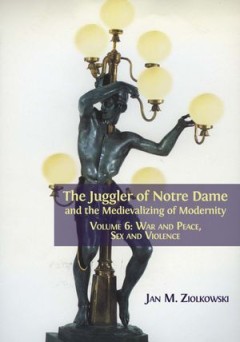
The Juggler of Notre Dame and the Medievalizing of Modernity: Volume 6 War an…
"This ambitious and vivid study in six volumes explores the journey of a single, electrifying story, from its first incarnation in a medieval French poem through its prolific rebirth in the nineteenth and twentieth centuries. The Juggler of Notre Dame tells how an entertainer abandons the world to join a monastery, but is suspected of blasphemy after dancing his devotion before a statue of the …
- Edition
- -
- ISBN/ISSN
- 9781783745418
- Collation
- -
- Series Title
- -
- Call Number
- 900 ZIO j
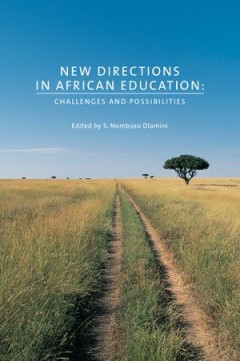
New Directions in African Education : Challenges and Possibilities
It has been said that education in post-colonial Africa is in a state of crisis. Policies and practices from Eurocentric colonial regimes have carried over, intertwining with challenges inherent in the new political and economic climate. Leaders have done little to remedy the malfunctioning education system, and even where attempts have been made, they have overwhelmingly been shaped by commerc…
- Edition
- -
- ISBN/ISSN
- 9781552385647
- Collation
- -
- Series Title
- Africa : Missing Voices
- Call Number
- 370 DLA n
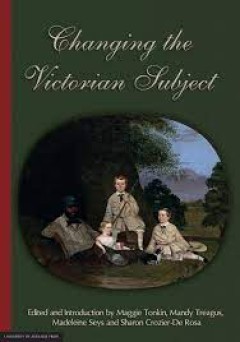
Changing the Victorian Subject
The essays in this collection examine how both colonial and British authors engage with Victorian subjects and subjectivities in their work. Some essays explore the emergence of a key trope within colonial texts: the negotiation of Victorian and settler-subject positions. Others argue for new readings of key metropolitan texts and their repositioning within literary history. These essays work t…
- Edition
- -
- ISBN/ISSN
- 9781922064745
- Collation
- 292 halaman
- Series Title
- -
- Call Number
- 800 TON c
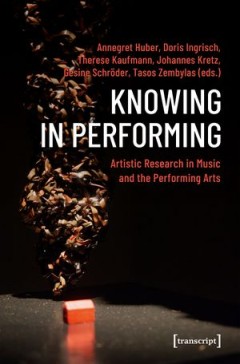
Knowing in Performing: Artistic Research in Music and the Performing Arts
How can performing be transformed into cognition? Knowing in Performing describes dynamic processes of artistic knowledge production in music and the performing arts. Knowing refers to how processual, embodied, and tacit knowledge can be developed from performative practices in music, dance, theatre, and film. By exploring the field of artistic research as a constantly transforming space for pa…
- Edition
- 1
- ISBN/ISSN
- 9783839452875
- Collation
- -
- Series Title
- -
- Call Number
- 792 KNO k
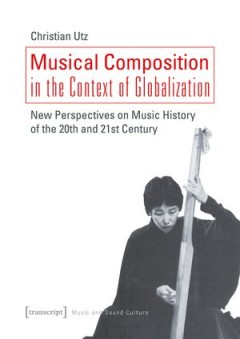
Musical Composition in the Context of Globalization: New Perspectives on Musi…
Since the early transformation of European music practice and theory in the cultural centers of Asia, Latin America, and Africa around 1900, it has become necessary for music history to be conceived globally - a challenge that musicology has hardly faced yet. This book discusses the effects of cultural globalization on processes of composition and distribution of art music in the 20th and 21st …
- Edition
- 1
- ISBN/ISSN
- 9783839450956
- Collation
- -
- Series Title
- -
- Call Number
- 780 UTZ m

Music - Media - History: Re-Thinking Musicology in an Age of Digital Media
Music and sound shape the emotional content of audio-visual media and carry different meanings. This volume considers audio-visual material as a primary source for historiography. By analyzing how the same sounds are used in different media contexts at different times, the contributors intend to challenge the linear perspective of (music) history based on canonic authority. The book discusses A…
- Edition
- 1
- ISBN/ISSN
- 9783839451458
- Collation
- -
- Series Title
- -
- Call Number
- 780 MUS m
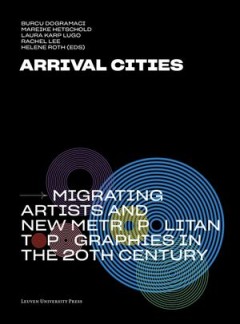
Arrival Cities : Migrating Artists and New Metropolitan Topographies in the 2…
The impact of migrating artists on modern art Exile and migration played a critical role in the diffusion and development of modernism around the globe, yet have remained largely understudied phenomena within art historiography. Focusing on the intersections of exile, artistic practice, and urban space, this volume brings together contributions by international researchers committed to revisin…
- Edition
- -
- ISBN/ISSN
- 9789461663245
- Collation
- -
- Series Title
- -
- Call Number
- 710 ARR
 Computer Science, Information & General Works
Computer Science, Information & General Works  Philosophy & Psychology
Philosophy & Psychology  Religion
Religion  Social Sciences
Social Sciences  Language
Language  Pure Science
Pure Science  Applied Sciences
Applied Sciences  Art & Recreation
Art & Recreation  Literature
Literature  History & Geography
History & Geography